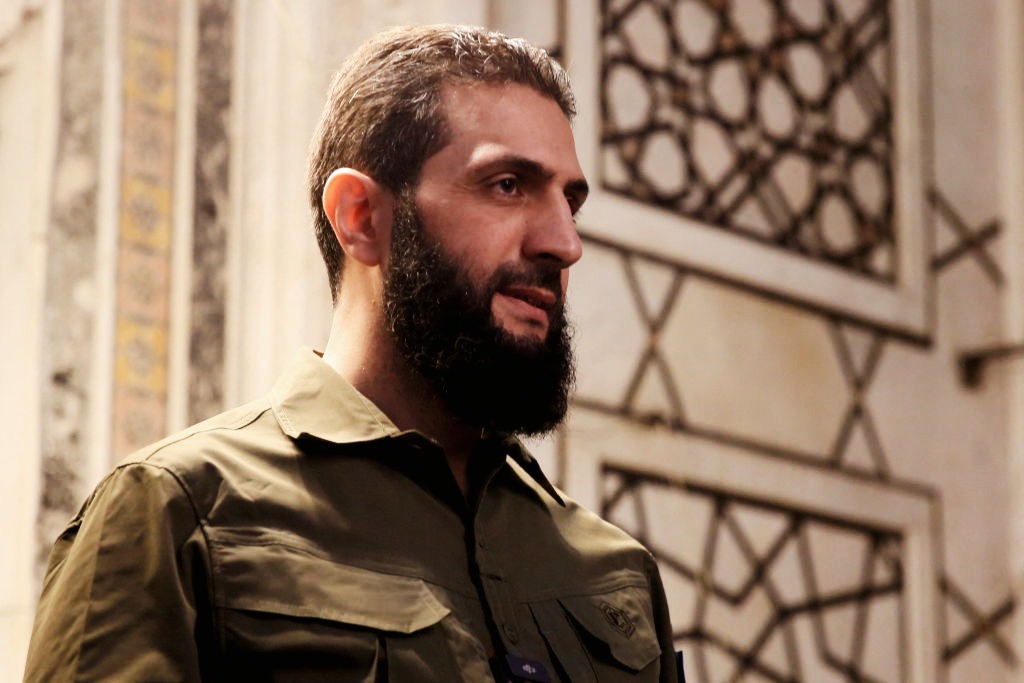Yesterday we woke to the astonishing news that the rebels from the Syrian opposition had taken Damascus and President Assad had fled. The joy is huge and infectious, even if tempered with trepidation. In 2007, I was assured by a soldier in Damascus that the Ba’athist regime had the solidity of rock. That could be said to be the line Assad repeated throughout the civil war from 2012 onwards. Yet in a few days from 27 November to 8 December this year, opposition forces spearheaded by HTS – Hay’at Tahrir al-Sham (‘the Organisation for the Liberation of the Levant’) – swept out of their bases in rebel-held Idlib and the Turkish controlled north, and the rock-solid regime crumbled to dust. Although its ideology of Ba’athism began with high principles, these had long since decayed through repression worthy of Stalin, combined with bribery at all levels and crowned by kleptomania at the top. Beware what happens if you lose your moral compass.
Not all Islamists are like Osama bin Laden
Everything will now depend on whether there is a functioning government in Syria and whether law and order can be maintained. Although severely decayed through the years of civil war and sanctions, the Ba’athist state was strong and centralised, even if sclerotic and riddled with corruption. The rebels in Idlib have also established their own administration, the Syrian Salvation Government. It will take political and administrative genius to blend these together in a productive manner. A strong, central authority is essential. Syria is diverse in both its human and physical geography.
One of the great dangers is that, as in Libya after the fall of Gaddafi, local armed groups will expect a reward and will create rival fiefdoms which then become permanent.
If central authority can be maintained, then, there is the possibility of hope. But the challenges any new government will face are massive. It will preside over a ruined, bankrupt and poverty-stricken country where many people are starving. In 2010, there were fewer than 50 Syrian pounds to the dollar. Immediately before the rebel offensive there were more than 15,000. In 2018, I saw the desolate swathes of eastern Aleppo, the Ghouta around Damascus and most of Homs which had been destroyed by the bombing and shelling of the regime and its allies. Those pulverised areas foreshadowed today’s Gaza, and extended for mile after mile. Little has been rebuilt since then. As many Syrians fled – either to areas where their kith and kin lived, or abroad as refugees – the regime tinkered with local demography. Loyalists were settled in abandoned housing or given opportunities to build. War profiteers have also taken over houses and other property. The problems to be sorted out are legion, and that’s before we even mention the task of reconciliation.
The leader of HTS, Abu Mohammad al-Jolani, was declared a Specially Designated Global Terrorist by the US Department of State in 2013. He was accused of pledging allegiance to Ayman al-Zawahiri, the leader of al Qaeda, organising suicide bombings, and leading an organisation with a ‘violent sectarian vision’. Over the years he seems to have become much more moderate, as he showed in a CNN interview on Friday.
Is this a rebranding, a genuine change of heart, or pragmatic politics? We are going to find out. Perhaps it does not matter – what matters are the results of how he uses his power. That, after all, was the test of Martin McGuinness and Ian Paisley in Northern Ireland. Because Jolani is an ‘Islamist’, many will fear the worst. But take it from the Cambridge English Dictionary: an Islamist means nothing more than ‘someone who believes strongly in Islam, especially one who believes that Islam should influence political systems.’ Not all Islamists are like Osama bin Laden. The Islamist Rashid Rida (1865-1935), who was president of the elected Syrian National Congress in 1920, worked hard with liberal politicians to establish a democratic constitutional order in Syria after world war one. His vision was frustrated by France, acting with British connivance, and left him deeply embittered. He believed democratic government based on the principles of Islam would provide greater security for Christians and Jews than government based on ‘national fanaticism’. If he were alive today, he would be able to point out to us that the Ba’athist regime of the Assads was indeed based on ‘national fanaticism’.
And geo-political implications? In Syria, at least for the moment, the optimism of the Arab Spring seems to have been rekindled. Let us pray this time its delicate flame will not be snuffed out. If it survives and the revolutionary spirit spreads, Sisi in Egypt and the family-based regimes of the Gulf may fear trouble. They will worry that their citizens will look to the Syrian model for inspiration. It may also be unwelcome in Israel, because a democratic government in Damascus will be well placed to ramp up pressure for the return of the Golan.
The big winner will be Turkey, which has stood by the opposition and been its mentor throughout. Now it has an important new friend in Damascus which it will want to support. Its position viz-a-viz the Kurds will therefore probably be strengthened. Russia has been humiliated. Iran has lost its best supply routes to Hezbollah in Lebanon. Does its ‘axis of resistance’ even still exist?







Comments